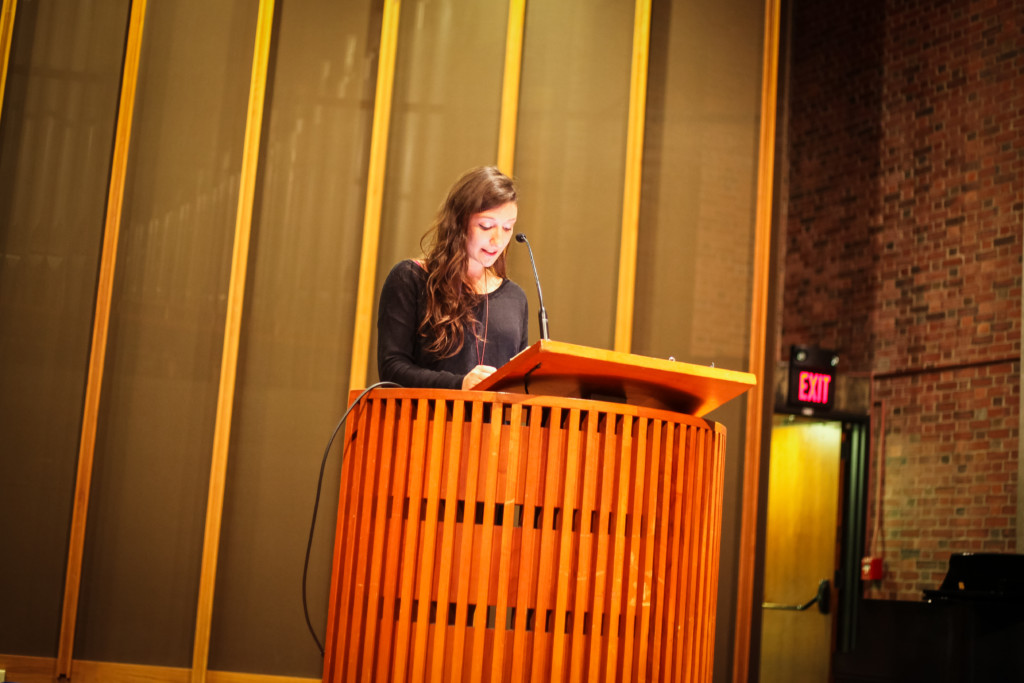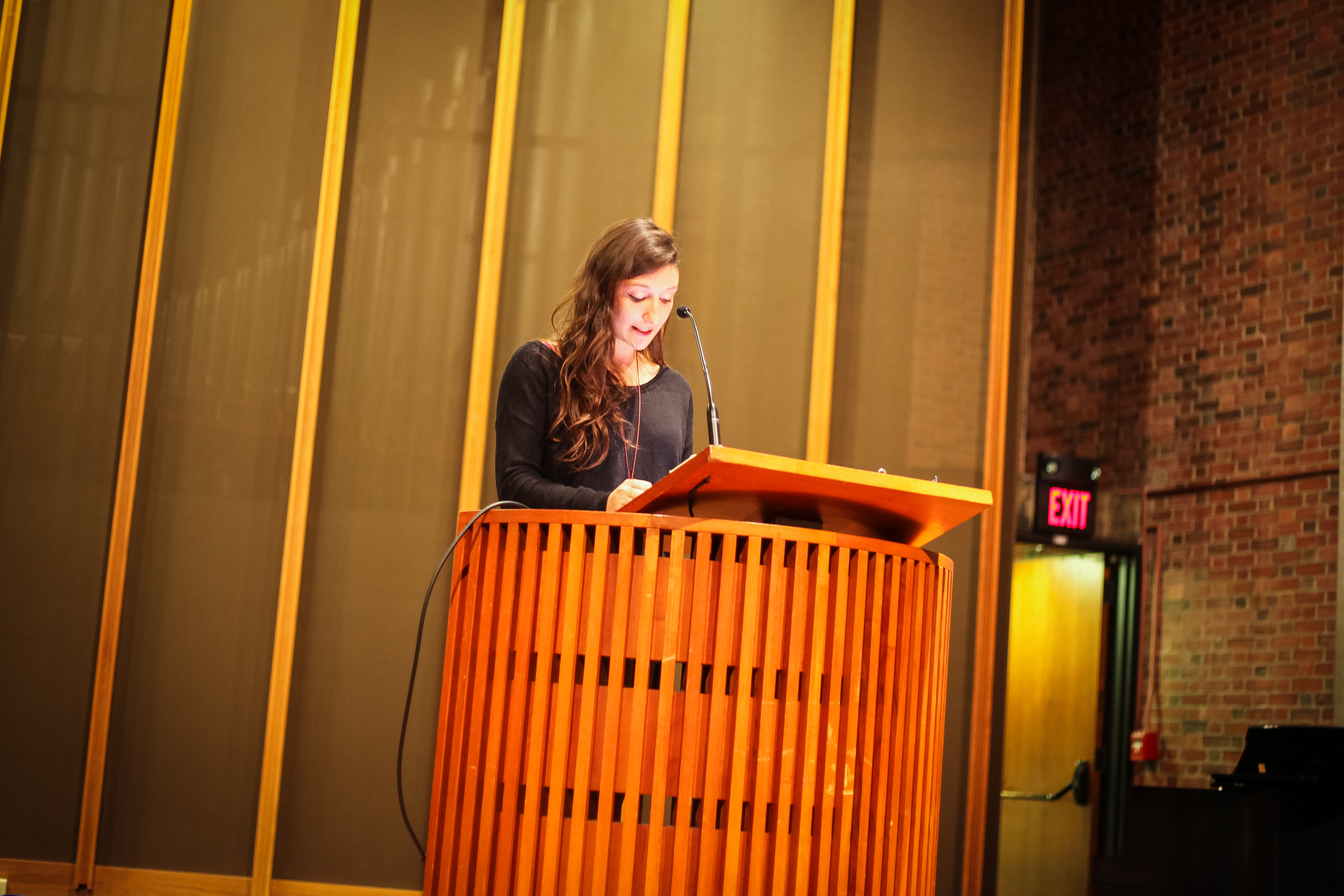Nearly 80 students, alumni, faculty, and staff showed up to a healing vigil on the eve of this year’s Meliora Weekend in the wake of this semester’s campus unrest.
The event, held in the Interfaith Chapel, featured a variety of speakers who presented poems, sang songs, and led attendees in prayer.
During the event, students from religious and ethnic minority groups, the LGBT community, and victims of sexual assault spoke about their experiences and healing.
“This came about when multiple student groups had similar grievances,“ junior Justin Delinois said. “[We want] to highlight issues of discrimination. Rather than continue to be unheard, we’re going to hear each other.”
Senior Andie Burkey, a nonbinary student, shared thoughts on healing.
“For a long time, I thought if I could get all-gender bathrooms on the Quad and Sue B then I could heal; if I got sanitary bins in all the gender bathrooms, and even the men’s bathroom, then I could heal; if I got housing options that affirmed my gender identity without isolating me from my classmates and friends, then I could heal,” Burkey said. “But I realized that you can’t heal in the same place that hurt you.”
Burkey continued by explaining that changes resulting from speaking up aren’t enough for one to heal. Instead, according to Burkey, healing takes place with others. Burkey said that what helped them heal the most was being their authentic self.
Eight SA senators showed up to the event in support of students who felt marginalized.
“As a junior senator, I wanted to listen to different parts of the student body,” Beatriz Gil said. “We’d like to see this happen more and have more people listen. That’s why we are here for, to listen and make tangible changes.”
Several student religious groups spoke, including the Muslim Students’ Association and Hillel.
The representatives from the Muslim Students’ Association delivered a message of unity to those in attendance, urging everybody to speak up when they are, or someone they know is, hurting.
“There are students who are suffering who don’t speak up,” Muslim Students’ Association freshman representative Amr Usef said.
Sophomore Fatimah Arshad, the Muslim Students’ Association freshman representative last year, added: “We must be unified today, but also tomorrow.”
Sophomore Brianna Terrell took the opportunity to remind people that some marginalized groups can inadvertently sideline others. Referencing the initial exclusion of Hillel from the vigil’s invite list, she explained that her friends have experienced cases where other groups have pushed Jewish students aside to advance their own agendas.
“I didn’t think I’d be a good speaker about anti-Semitism because I didn’t experience it myself,” Terrell said after she spoke. “I thought I’d reach out to my friends who had experienced anti-Semitism, and a lot of the experiences they shared with me were experiences they had on campus with other students.”
Terrell said previously in her speech that she isn’t angry about the late invitation of Hillel to the event, but that she hoped that instead her speech would raise awareness of the problems Jewish students experience.
“I’m hoping it will open other students’ eyes,” Terrell said.
Among the attendees was Dean of Admissions Jonathan Burdick, who attended following an invitation from Delinois.
“It’s absolutely critical that people who want to bring attention to issues and questions have ample forum to do that,” Burdick said. “This was an important one to do that. I’m happy to see students do this. To me, this is what a college community should be for.”
Psychology professor Marie-Joelle Estrada spoke to reassure students that the University’s faculty was there for them.
“There’s disconnect between what students are facing from the faculty and the administration,” Estrada said. “The students are the best part of the University, and it’s my job to be there for them. I know it doesn’t feel like it, but there’s lots of love here on this campus.”
Delinois expects there to be more events like the healing vigil to help underrepresented and marginalized students feel welcome and heal.
“We need to get all the student leaders to sit down at the table, which is one of the more difficult things to do,” Delinois said. “We need to organize, we need to demonstrate, we need to educate.”
Columnist Jackie Powell contributed reporting to this article.



